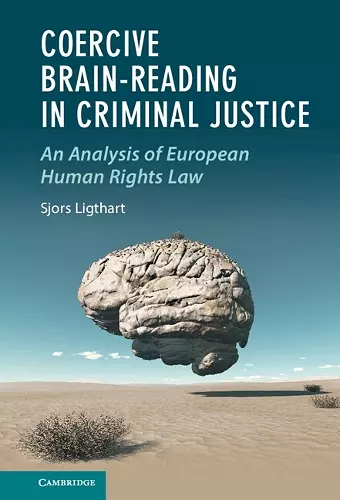Coercive Brain-Reading in Criminal Justice
An Analysis of European Human Rights Law
Format:Hardback
Publisher:Cambridge University Press
Published:1st Sep '22
Currently unavailable, and unfortunately no date known when it will be back

This book examines the legal boundaries of non-consensual brain-reading in criminal justice, focusing on human rights like freedom of thought.
This book examines the legal boundaries of non-consensual brain-reading in criminal justice. Focusing on human rights such as privacy and freedom of thought and expression, the book informs lawyers and ethicists debating the legal implications of emerging neurotechnology and advises policymakers and judges in specifying the law to neurotechnology.Emerging neurotechnology offers increasingly individualised brain information, enabling researchers to identify mental states and content. When accurate and valid, these brain-reading technologies also provide data that could be useful in criminal legal procedures, such as memory detection with EEG and the prediction of recidivism with fMRI. Yet, unlike in medicine, individuals involved in criminal cases will often be reluctant to undergo brain-reading procedures. This raises the question of whether coercive brain-reading could be permissible in criminal law. Coercive Brain-Reading in Criminal Justice examines this question in view of European human rights: the prohibition of ill-treatment, the right to privacy, freedom of thought, freedom of expression, and the privilege against self-incrimination. The book argues that, at present, the established framework of human rights does not exclude coercive brain-reading. It does, however, delimit the permissible use of forensic brain-reading without valid consent. This cautionary, cutting-edge book lays a crucial foundation for understanding the future of criminal legal proceedings in a world of ever-advancing neurotechnology.
'Should our criminal justice systems adopt new neuroimaging technologies for the purposes of determining responsibility, establishing guilt or assessing risk of recidivism? Ligthart traces the myriad ways in which European human rights law bears on this question. His book provides a compelling, lucid and even-handed analysis, and is essential reading for anyone interested in the ethical and legal status of forensic brain-reading.' Tom Douglas, Oxford Uehiro Centre for Practical Ethics, University of Oxford
'This important book, by one of the leaders of the new generation of neurolaw scholars, effectively challenges complacent assumptions that existing European safeguards provide adequate protection to the threats to human rights arising from neurotechnologies. A 'must-read' for policymakers, legislators and all who care about human rights.' Paul Catley, Professor of Neurolaw and Honorary Associate, The Open University
ISBN: 9781009252430
Dimensions: 235mm x 158mm x 22mm
Weight: 597g
300 pages